Not all medical destinations are suitable for your needs. Here are questions to ask when choosing to travel for medical treatment.
Do you work in a medical destination not listed here? Tell us about it.Medical Traveler’s Bill Of Rights for all traveling international patients
MTQUA believes that all health care providers and partners should observe a health care ethic that respects the unique situation of the medical traveler. As the giving and receiving of health care goes global, we encourage all hospitals, institutions, medical professionals and related services to consider a bill of rights for international patients – specifically medical travelers – that supports good, safe, and appropriate medical outcomes.
Vulnerable to misunderstandings and inappropriate care, or subject to the vagaries of foreign laws that offer less or no protection in certain situations than they expect, patients crossing borders are dependent on the foreign care giver to offer appropriate care, observe high privacy standards and guard against undue risks to safety and quality.
A health care provider or medical tourism service partner, when accepting a medical traveler for care, makes both an explicit and implicit contract with the traveling patient. A contract with the patient should acknowledge these rights.
Most providers and some medical tourism companies already have a Patient’s Bill of Rights for local patients. International traveling patients, or medical travelers, have special and unique needs that are not addressed in the typical patient bill of rights.
We thank everyone who has contributed to this discussion of international patient’s rights and the rights of the medical traveler.
As a medical traveler, you have these rights.
Rights that apply particularly to medical tourists are written in bold below.
You have the right to choice of medical treatment.
1. To choose to travel to another country to request and receive responsible and responsive medical care and treatment; and receive continuing or follow-up medical care and treatment upon returning home.
2. To receive a thorough evaluation by knowledgeable providers and screening tools of high standards which facilitate disease detection.
3. To receive medical care and treatment of a standard of quality comparable to that received by any patient attended by the same physician in the same facility; receive this care and treatment for the same cost; and receive skilled emergency care if you need it.
4. To receive relief from suffering according to the current state of knowledge of pain assessment and management.
5. To expect continuity of care, including a written discharge summary with information about continuing health care requirements immediately following your discharge from treatment and about longer term care after you return home, and information about cooperation between all health care providers and/or establishments which are involved in your diagnosis, treatment, care and follow-up including names and contact details; and a description of how you can appeal your discharge if needed.
You have the right to information.
6. To request and receive, prior to treatment, an accurate and complete estimate of charges for your medical care or treatment.
7. To ask and be informed about the identity and professional status of the physician who will be coordinating your care, and of other health care providers who will see you, including qualifications related to your condition, such as education, medical license, board certification and recertification, years of practice, and experience and outcomes in performing the recommended procedures.
8. To ask and be informed about the health care facility, including accreditation status, experience in performing recommended procedures and services, performance results or outcomes, and presence of or access to appropriate technology; and about the facility’s rules, policies, practices, and events that relate to patient care, treatment and responsibilities.
9. To receive understandable and relevant information about your current health status, options for treatment with related risks and benefits, length of recuperation, details about the course of treatment, your prospects for recovery, other medical alternatives, and the possible and probable outcomes of receiving or refusing care; and you have the right to request interpretation into another language.
10. To receive information about all prescribed medications including their names and alternative names as they may be known by in your country of residence, their normal actions and potential side-effects as may apply to you.
11. To ask and be informed if your physician proposes to perform research, experimentation, clinical trials or teaching that may affect your care or treatment; receive a full explanation; and agree or refuse to participate in such activities. Your refusal must not affect the standard of your medical care.
12. To ask and be informed about the existence of business relationship among the hospital, treatment facility, other health care provider, payer or agent.
13. To review your medical records; receive a copy of your medical records and other health-information documents; request changes to your medical records by providing documents or information before admission and/or after discharge; and update your demographic data at any hospital through procedures that guarantee accuracy, credibility and confidentiality of updated information.
You have the right to choice.
14. To have a support person – a family member or other person of your choosing – present during examinations, tests, and meetings with your doctors. This includes your reasonable right to designate visitors during inpatient care in keeping with your health care facility’s restrictions, and to choose who, if anyone, should be informed on your behalf.
15. To receive timely and prioritized scheduling of consultations, surgery and treatment, and timely response to requests and inquiries when you have work and travel constraints.
16. To make decisions about your medical care including giving informed consent prior to any medical intervention; and receive information about any proposed treatment procedure or medication you need to enable such informed consent or to refuse a course of treatment.
17. To seek a second or further opinion and/or referral to other specialists; and leave the hospital, even against the advice of doctors, to the extent permitted by law.
18. To continue or refuse treatment to the extent permitted by applicable laws regardless of how mild or advanced your condition may be. If you refuse a recommended treatment you are entitled to other appropriate care and service that the hospital provides or transfer with full medical records to another physician or hospital.
19. To consent in writing for the preservation, disposition or use of all substances of your body, except when used in your current diagnosis, treatment and care.
20. To provide advance directives such as a living will, durable power of attorney for health care, or health care proxy that will be honored by medical personnel to the extent permitted by applicable law. Such directives may include designation of a decision maker in the event you cannot speak for yourself, and your preferences on issues related to resuscitative services and desire for or against life-sustaining treatment.
You have the right to privacy.
21. To receive treatment considerate and respectful of your personal values and beliefs, without regard to national origin, citizenship, country of residence, language, race, color, religion, ancestry, medical diagnosis, mental or physical disability, genetic makeup, educational background, gender, sexual orientation, marital status, economic status, or the source of payment for your care.
22. To receive evaluation and treatment in confidence and privacy, including in all written and electronic records, during case discussion, consultation, examination and treatment except where reporting is required by law.
23. To receive evaluation and treatment in facilities that ensure privacy during personal care, examinations and treatment; and interventions carried out only in the presence of those persons necessary for the intervention unless you agree.
You have the right to complaint.
24. To be informed of available resources for resolving disputes, grievances and conflicts, such as ethics committees, patient representatives, or any independent mechanisms available in the community, including ombudsmen and foreign consular representatives; have your dispute examined and dealt with thoroughly and in a timely manner; and be informed about the outcome.
Our mission and vision
Our team
Our services
Medical Traveler’s Responsibilities
Medical concierge and international patient care management
Care management for medical tourists comes in many forms. Most often, a medical travel company will contract with a local travel or destination agency to provide “ground services” for the patient.
In other cases, a medical travel company provides a a more extensive or comprehensive service for the medical traveler. This service can be the equivalent of a care manager, offering patient liaison services, nursing support, and medical travel planning. In such cases, the care manager may also function as a patient advocate or patient representative.
Medical concierge
A medical concierge is often found on site at the medical destination. The medical concierge has no medical training or experience. “Medical” refers only to the function of ensuring the patient gets to all medical appointments on time, and visiting a patient in the hospital.
The medical concierge may function as a personal assistant, providing services from airport pickup to family liaison and shopping assistance. The services of a medical concierge are restricted to not much more than a travel guide.
International patient care manager
The international patient care manager is a professional trained to support and help you manage your medical and surgical care away from home. The international patient care manager speaks the local language and has access to a network of local medical support services that you may need.
The international patient care manager is your advocate, your agent and your partner. The international patient care manager takes responsibility for your care at the medical destination.
The patient care manager helps plan your procedures, coordinates with the medical team to ensure that all hospital and surgical requirements are satisfied, facilitates all consultations, communication, activities, and events, provides support and reassurance to the patient, family and friends, and manages all post-surgery recovery needs and services.
Having a patient care manager working for you gives you immeasurable confidence, support, and reassurance at a time when you need to put all your energies and thoughts toward preparing for your procedures and having a stress-free recovery.
Should an unanticipated event occur, the patient care manager, on duty on site at your medical destination, can step in to do whatever needs to be done, to make new arrangements or change existing ones, and to provide any other support necessary to keep you on your path to comfortable, uneventful medical care, surgical procedure, and recovery.
Finding Quality at the Top 10 World’s Best Hospitals For Medical Tourists™
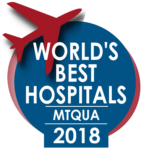
Hospitals from around the world are considered annually for the MTQUA Top 10 list of the World’s Best Hospitals for Medical Tourists™.
The Top 10 list | Criteria for selection
The general environment for medical tourism
Asia continues to be the top medical destination in medical travel. Asian medical destinations continue to offer more and better medical procedures and care than most other medical destinations.
However, the competitive environment is changing. Europe and the Middle East are now making it easier for medical travelers especially the growing numbers from Africa to access well-priced treatment. The continuing entry of more and better hospitals around the world and the energy by some government tourism boards in promoting medical tourism are forcing both providers and patients to review what makes good value in medical tourism and where and how to best get it.
International hospitals and medical tourism
Not all top hospitals around the world are keen to take international patients who live in other countries. The investment in treatment and care that is required is often considerable so they carefully evaluate the extent of their participation in medical tourism.
American hospitals are generally not seen as open or caring of foreign patients or medical tourists as hospitals in Europe and elsewhere. Their priorities are directed at domestic patients. Some renowned exceptions that attract international traveling patients for specific medical needs include the Mayo Clinic, Cleveland Clinic, Memorial Sloan-Kettering Cancer Center, and Johns Hopkins Hospital.
Why select the Top 10 World’s Best Hospitals?
MTQUA annually publishes the list of the top 10 World’s Best Hospitals for Medical Tourists™. We choose to recognize hospitals around the world that best meet MTQUA criteria for quality in patient care management for international traveling patients.
This list of leading hospitals for medical tourism is issued by the Medical Travel Quality Alliance to help patients, hospitals, and medical travel companies better understand the important factors that create an outstanding medical experience for a medical tourist.
Criteria for selecting the Top 10
All 10 hospitals on the list of the World’s Best Hospitals for Medical Tourists™ provide medical treatment and care for medical travelers that is of the highest quality and with advanced technology. All have outstanding local and regional reputations.
Many of these top 10 hospitals have international accreditation from any of several accreditation agencies. Others may not have international accreditation but have stellar international reputations and other qualifications for medical quality and patient safety.
In selecting the hospitals for this list, MTQUA considers more than high quality medical treatment. Quality of treatment and care for medical travelers goes beyond accreditation, high tech equipment and luxurious settings. Our criteria for selection includes communication, transparency, privacy, security, marketing, ethics and leadership.
Hospital profiles are here.
Home
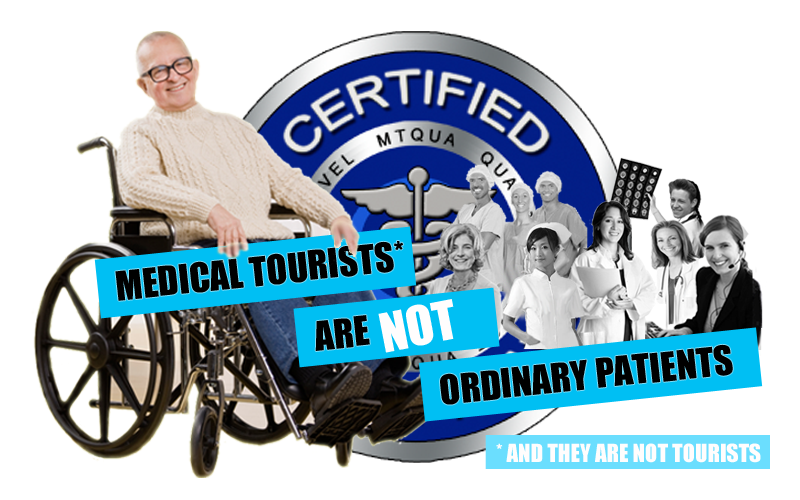
Medical tourism rewards those who choose to travel by providing excellent medical treatment and care at a price they can afford.
But with the rewards come more and greater risks of getting the desired results.
Medical tourism is more than finding a good hospital that offers extras like hotel bookings, transportation services and special foods.
Medical tourists have come to expect these extras, and many treatment centers are more than happy to provide these extra comforts.
Just as traveling for medical treatment to a foreign land cannot be treated like a vacation, neither can it be treated like a visit to your local hospital or clinic.
Medical travel creates risks for patients that are different from those had they been treated at home.
This is not a reason to stay home. This is a reason for those who treat and those who are treated to become smarter and better about understanding the problems, lowering the risks and getting better outcomes.
![]()
![]()
![]()
 Would You Let Your Travel Agent Choose Your Surgeon?
Would You Let Your Travel Agent Choose Your Surgeon?
Or a retired high school teacher choose your fertility specialist? Critical decisions about the safety of hospitals, surgeons and treatment are made daily by people with no expertise or specialized training. Few are medical professionals. Read more …
![]()
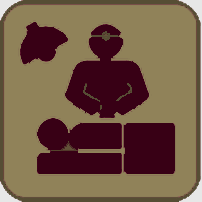 Do Cultural Differences Affect International Hospital Quality?
Do Cultural Differences Affect International Hospital Quality?
The distribution of illnesses may be a little different from country to country but the application of healthcare quality standards should have the same core principles. Still, one should beware of applying one country’s values on another. Read more …
![]()
 How Does Care Management Improve Quality Outcomes?
How Does Care Management Improve Quality Outcomes?
Aside from the obvious differences between having care at home and traveling abroad for care, medical treatment everywhere is increasingly complex and choices for care now require greater knowledge and more care givers than ever. Read more …
![]()
 How Much Does It Cost?
How Much Does It Cost?
The value of having medical treatment abroad has changed. The New Economics of Medical Tourism shows what has changed, why it has changed, and where to find the best values. Read more …







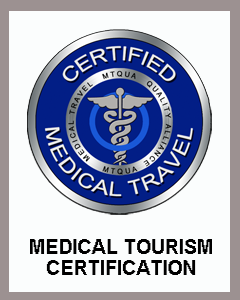
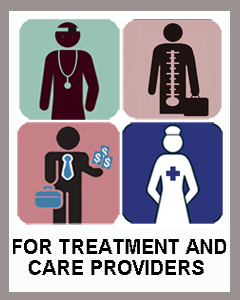
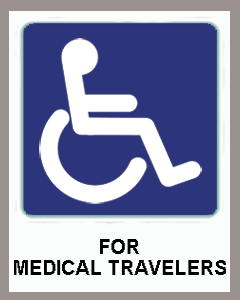
 Five medical travel destinations present unreasonable and unwarranted harm to medical travelers and health tourists.
Five medical travel destinations present unreasonable and unwarranted harm to medical travelers and health tourists.








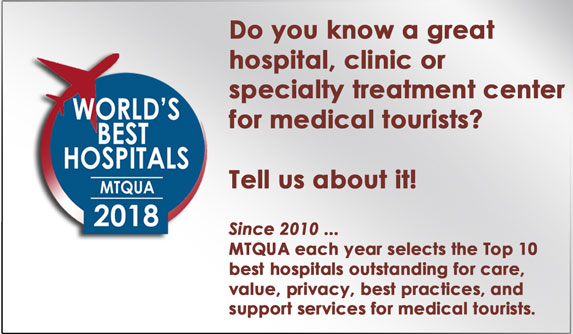 >
>